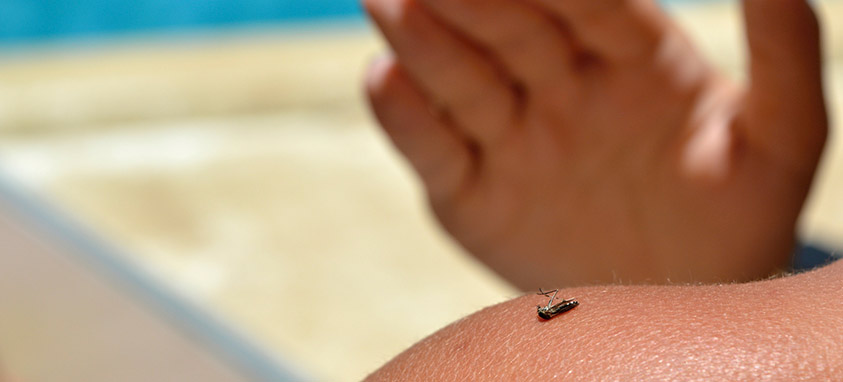CDC has issued a travel alert (Level 2-Practice Enhanced Precautions) for people traveling to regions and certain countries where Zika virus transmission is ongoing: Brazil, Colombia, El Salvador, French Guiana, Guatemala, Haiti, Honduras, Martinique, Mexico, Panama, Paraguay, Suriname, Venezuela, and the Commonwealth of Puerto Rico.
This alert follows reports in Brazil of microcephaly and other poor pregnancy outcomes in babies of mothers who were infected with Zika virus while pregnant. However, additional studies are needed to further characterize this relationship. More studies are planned to learn more about the risks of Zika virus infection during pregnancy.
Until more is known, and out of an abundance of caution, CDC recommends special precautions for pregnant women and women trying to become pregnant:
–Pregnant women in any trimester should consider postponing travel to the areas where Zika virus transmission is ongoing. Pregnant women who must travel to one of these areas should talk to their doctor or other healthcare provider first and strictly follow steps to avoid mosquito bitesduring the trip.
–Women trying to become pregnant should consult with their healthcare provider before traveling to these areas and strictly follow steps to prevent mosquito bites during the trip.
Because specific areas where Zika virus transmission is ongoing are difficult to determine and likely to change over time, CDC will update this travel notice as information becomes available. Check the CDC travel website frequently for the most up-to-date recommendations.
Currently, there is no vaccine to prevent or medicine to treat Zika. Four in five people who acquire Zika infection may have no symptoms. Illness from Zika is usually mild and does not require hospitalization. Travelers are strongly urged to protect themselves by preventing mosquito bites:
–Wear long-sleeved shirts and long pants
–Use EPA-registered insect repellents containing DEET, picaridin, oil of lemon eucalyptus (OLE), or IR3535. Always use as directed.
–Insect repellents containing DEET, picaridin, and IR3535 are safe for pregnant and nursing women and children older than 2 months when used according to the product label. Oil of lemon eucalyptus products should not be used on children under 3 years of age.
–Use permethrin-treated clothing and gear (such as boots, pants, socks, and tents).
–Stay and sleep in screened-in or air-conditioned rooms.
In addition to the steps announced today, CDC is working with public health experts across the U.S. Department of Health and Human Services (HHS) to take additional steps related to Zika. CDC is developing interim guidance for pregnant women as well as sharing additional information about Zika with public health officials, clinicians and the public. In addition, efforts are underway across HHS to develop vaccines, improved diagnostics and other countermeasures for Zika.




